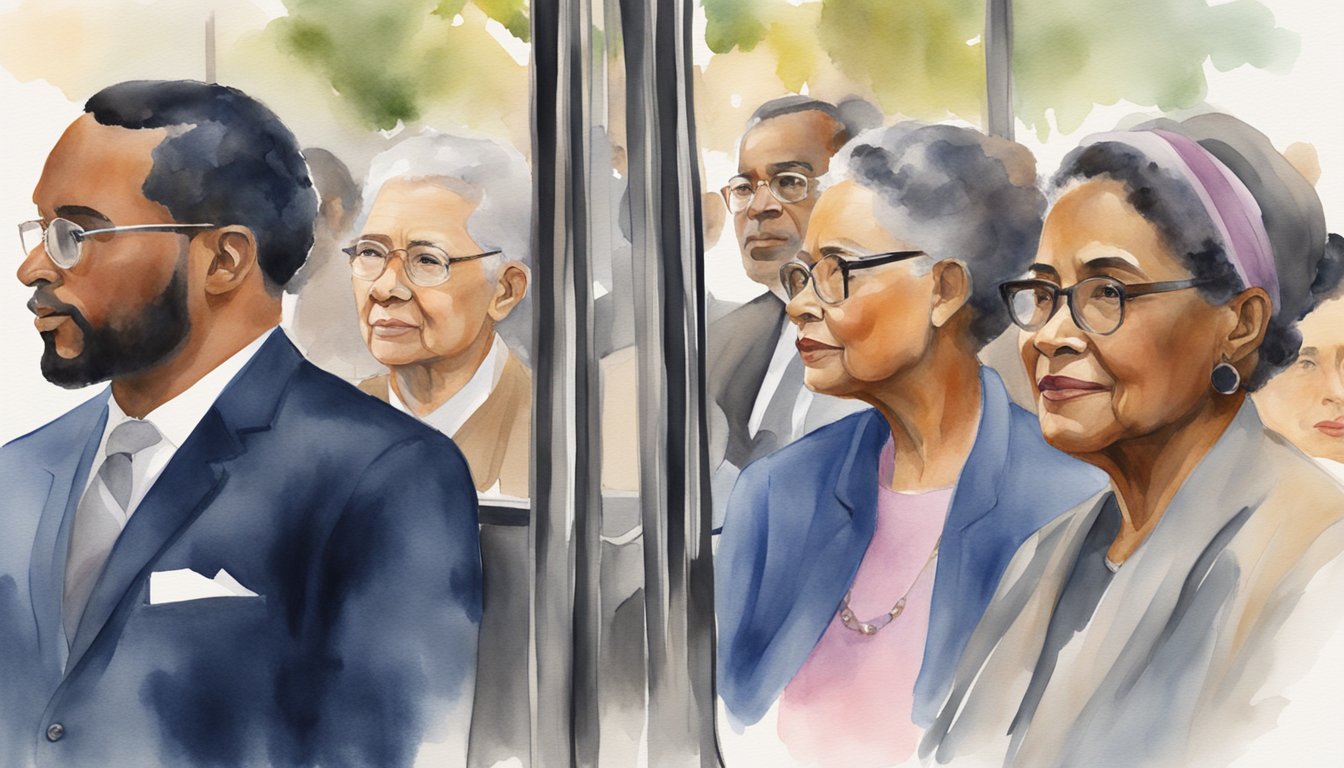Life and Legacy of Rosa Parks
Rosa Parks’ refusal to surrender her seat to a white passenger on a Montgomery bus is a defining moment in American civil rights history. Her activism extended far beyond that day, leaving a profound legacy that continues to inspire.
Early Life and Education
Rosa Parks was born on February 4, 1913, in Tuskegee, Alabama, and spent her childhood in Pine Level, Alabama. Despite the challenges of segregation, she completed her secondary education, a feat less common for African American individuals during that era. For her early education, she attended rural schools and later enrolled at the all-Black Booker T. Washington High School in Montgomery.
Rosa Parks and the Civil Rights Movement
As a civil rights activist, Parks was deeply involved with the NAACP, serving as its secretary and working alongside other leaders such as E.D. Nixon. Her arrest on December 1, 1955, for refusing to give up her seat, impelled the Montgomery Bus Boycott. This pivotal event in the Civil Rights Movement challenged the Jim Crow laws of the South and was a catalyst for nationwide efforts to end racial segregation.
Later Years and Awards
After the bus boycott, Parks moved to Detroit, where she continued to be an advocate for justice and equality. She received numerous accolades for her work, including the Congressional Gold Medal and the Presidential Medal of Freedom. These honors solidified her place as a figure of significant importance in American history. Parks’ life is a testament to her enduring impact on the Civil Rights Movement and her unwavering dedication to the struggle for equality.
Impact on Society Through Media

Rosa Parks’ act of defiance and her pivotal role in the Civil Rights Movement have been extensively chronicled through various forms of media. These representations have deeply impacted society’s understanding of American history and the struggle for racial equality.
Rosa Parks in Film and Television
Film and television have brought the story of Rosa Parks to a wide audience, illustrating the effects of segregation and her courage in the face of adversity. The cinematic portrayals often serve to inspire and educate viewers about the complexities and challenges of the Civil Rights Movement. For instance, the narrative of her life and the Montgomery Bus Boycott has been depicted through productions that aim to faithfully represent African Americans’ fight for civil rights. These media contributions underscore how significant actions, like those taken by Rosa Parks in Montgomery, Alabama, have shaped the American social fabric and consciousness.
Educational Outreach and Commemorations
Rosa Parks’ legacy is preserved and promoted in educational settings, where teachers use her story to instill lessons on diversity and justice. For schoolchildren, her narrative is an informative piece of American history that highlights the power of peaceful protest. Commemorative events and educational materials about Rosa Parks’ life and impact help ensure that the valuable information is accessible to a broader audience. Moreover, institutions like the Library of Congress feature materials related to Rosa Parks that serve as a crucial information resource. Through yearly observances and learning modules, Rosa Parks continues to be a symbol of the ongoing pursuit of equal rights.

